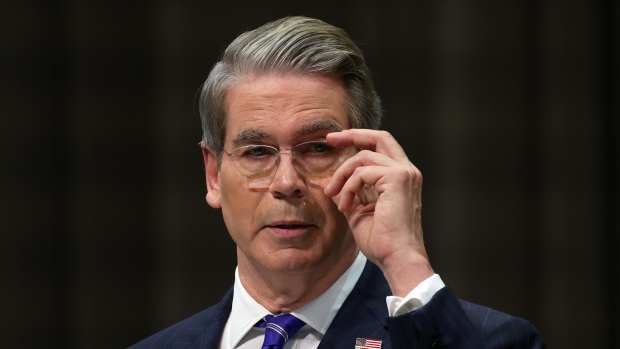Bitcoin Experiences Drop Below Key Support Level
Bitcoin dropped under a crucial support threshold on Thursday after US Treasury Secretary Scott Bessent stated that the government has no intentions to acquire more Bitcoin for its strategic reserve and separate digital asset stockpile.
At the time of this writing, Bitcoin (BTC) was trading at $118,730, having fallen below the psychological support level of $120,000, just hours after reaching a record high of $124,457 earlier that day, according to data from Cointelegraph.
This decline followed Bessent’s remarks during an interview with Fox Business, in which he confirmed that the government would not be purchasing more Bitcoin. “We’ve also started to get into the 21st century, a Bitcoin reserve. We’re not going to be buying that, but we are going to use confiscated assets and continue to build that up,” Bessent stated.
On March 6, US President Donald Trump signed an executive order to establish both a strategic Bitcoin reserve and a separate digital asset stockpile, which would initially consist of cryptocurrency forfeited in government criminal matters. Trump’s order allowed for the possibility of additional Bitcoin purchases by the US Treasury through “budget neutral” strategies that “do not impose incremental costs on United States taxpayers.”
In March, Bessent advocated for a strategic change in the US’s approach to its Bitcoin reserve. He expressed to CNBC and during the White House Crypto Summit that the government should stop selling seized Bitcoin and “bring it onshore” using established regulatory frameworks.
He explained that after compensating victims of financial misconduct, any remaining seized coins would contribute to a national Bitcoin reserve, positioning the US to take a lead role in the global cryptocurrency arena.
In April, Bo Hines, who was then part of the Presidential Council of Advisers for Digital Assets, mentioned that the administration was considering funding options for Bitcoin acquisitions, such as tariff revenue and a reassessment of the Treasury’s gold certificates.
Thursday’s decline occurred just hours after Bitcoin had briefly surpassed Google’s $2.4 trillion market capitalization, making it the fifth-largest global asset, until optimism faded regarding the Treasury’s position.
On a more positive note regarding the sentiment-debilitating statement, Bessent affirmed that the US does not plan on selling any of its current Bitcoin holdings.
Bessent’s remarks align with those of White House AI and crypto czar David Sacks, who noted that a Bitcoin reserve would serve as “a digital Fort Knox for the cryptocurrency,” asserting that the US would not sell any Bitcoin allocated to the reserve. “It will be kept as a store of value,” Sacks mentioned in a March 7 X post.
Market Context
In the meantime, the escalating US national debt may lead more investors to consider Bitcoin’s financial characteristics as a hedge against ongoing inflation.
The US debt exceeded $37 trillion for the first time on Wednesday, raising expectations of a Bitcoin rally to new all-time highs fueled by predictions of money supply growth, as the government seeks to manage the rising debt and stimulate economic spending.



















